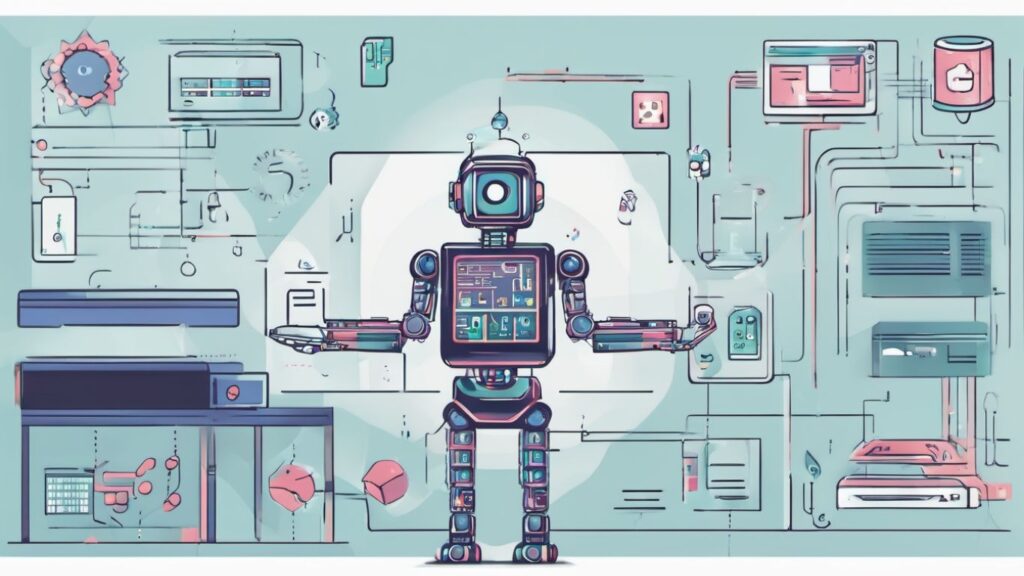Artificial Intelligence (AI) is an expansive field encompassing various forms and capabilities. Among these, Artificial General Intelligence (AGI) stands out for its potential to revolutionize our world. While most AI systems today are designed to perform specific tasks, AGI aims to mirror human cognitive abilities, offering a more versatile and adaptive approach to problem-solving. In this blog post, we’ll explore what AGI AI is, how it differs from other AI forms, the current state of research, potential applications, ethical considerations, and future implications.
Defining AGI: Key Characteristics Explained
AGI, or Artificial General Intelligence, refers to AI systems that can understand, learn, and apply knowledge across various tasks and contexts. Unlike specialized AI, AGI seeks to exhibit human-like intelligence and adaptability. Here are some key characteristics:
- Versatility: Ability to perform multiple tasks, from data analysis to language translation.
- Adaptability: Capability to learn and adapt to new information and environments.
- Autonomous Problem-Solving: Potential to solve complex problems without human intervention.
AGI vs. Narrow AI: Major Differences
The primary distinction between AGI and Narrow AI lies in their scope and flexibility:

- Narrow AI is specialized in performing specific tasks (e.g., voice assistant recommendation engines). It excels within its domain but struggles outside predefined parameters.
- AGI aims for broad applicability, mimicking human cognitive abilities. It can adapt to multiple tasks and domains, exhibiting a higher level of general intelligence.
Current State of AGI Research Efforts
Achieving AGI is a monumental challenge, and while we haven’t reached this milestone, several research initiatives are making strides:
- OpenAI’s GPT-3: An advanced natural language processing model that, while not AGI, showcases impressive capabilities.
- DeepMind’s Reinforcement Learning: Algorithms that exhibit human-like problem-solving in complex domains.
- The Human Brain Project: Aims to create brain-inspired computing technologies, potentially paving the way for AGI.
Potential Applications of AGI Technology
If realized, AGI could transform various sectors:
- Customer Service: AI that understands and resolves industry queries, enhancing user experience.
- Human Resources: Intelligent systems for efficient candidate selection, onboarding, and Employee engagement.
- Data Analysis: Autonomous systems capable of uncovering insights from vast datasets.
- Supply Chain Management: Predictive models for optimizing logistics and reducing waste.
- Marketing: Personalized campaigns driven by AI understanding consumer behavior.
Ethical Considerations Surrounding AGI Development
The development of AGI raises several ethical questions:
- Transparency and Accountability: Ensuring AI decisions are explainable and free from bias.
- Privacy and Data Security: Protecting personal data from misuse.
- Job Displacement: Mitigating the impact on employment through reskilling programs.
- Legal and Ethical Frameworks: Establishing safe and fair use regulations in sensitive sectors like healthcare and finance.
- Global Security: Preventing misuse in warfare and fostering international cooperation.
Future Implications of Achieving AGI
The successful development of AGI could have far-reaching implications:
- Industrial Revolution: Redefining productivity and efficiency across sectors.
- Workforce Transformation: Shifting job roles and creating new opportunities in AI system management.
- Scientific Breakthroughs: Accelerating research in healthcare, climate change, and beyond.
- Ethical and Societal Impact: Necessitating robust frameworks to manage privacy, security, and ethical concerns.
FAQs
What is the difference between AGI and Narrow AI?
AGI refers to AI systems that can perform various tasks with human-like understanding and adaptability. At the same time, Narrow AI is designed for specific functions and lacks the flexibility to operate outside its programmed parameters.
Is AGI currently achievable?
While significant progress is being made in AI research, particularly in domains like natural language processing and reinforcement learning, AGI has yet to be realized. Researchers continue exploring various approaches to develop systems that mimic general human intelligence.
What industries could benefit most from AGI?
AGI can transform numerous sectors, including customer service, human resources, data analysis, supply chain management, and marketing, among others, by enabling more efficient and intelligent solutions.
What ethical concerns are associated with AGI?
The development of AGI raises several ethical issues, such as the need for transparency in AI decision-making, protection of personal data privacy, the impact of automation on employment, and the establishment of regulatory frameworks to ensure fair and safe use of AI technologies.
How might AGI impact the future workforce?
The advent of AGI could transform job roles with a shift towards new opportunities in managing AI systems. However, it could also necessitate reskilling for workers displaced by automation.
Conclusion
AGI represents a significant leap forward in AI technology, promising unprecedented advancements and challenges. While we are still in the early stages of development, the efforts underway show immense potential. Achieving AGI will require a collaborative approach, balancing innovation with ethical considerations to ensure a beneficial impact on society. Stay tuned as we continue to explore this fascinating frontier.











